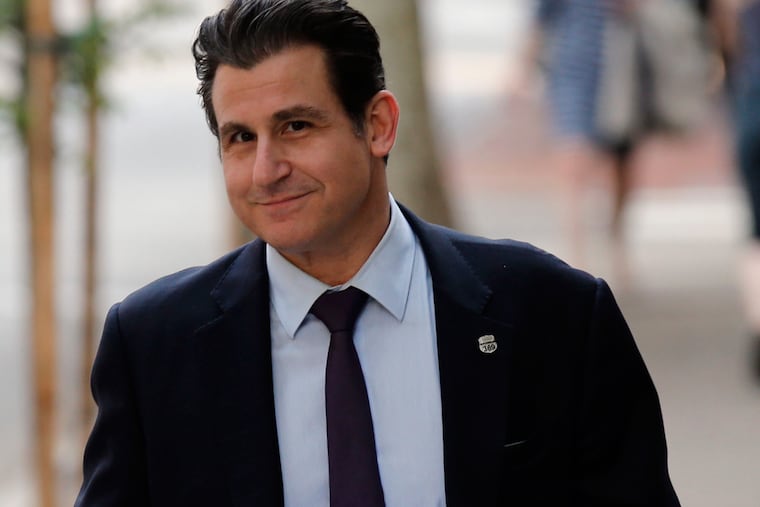Is federal fraud case against Farnese falling apart? Judge: 'It's terribly close'
The judge presiding over State Sen. Larry Farnese's federal fraud trial said the defense made "strong" arguments Thursday seeking to persuade her to take the uncommon step of throwing out a case after the trial had begun.

The judge presiding over State Sen. Larry Farnese's federal fraud trial said the defense made "strong" arguments Thursday seeking to persuade her to take the uncommon step of throwing out a case after the trial had begun.
But although U.S. District Judge Cynthia M. Rufe described the argument as "terribly close," she did not immediately rule, saying she would let the trial play out and would act before jurors begin deliberations.
"I think it's terribly close," she said. "But I don't know what else is coming."
Rufe's comments came during a break in the trial as the government neared the conclusion of its case against Farnese, who is accused of buying the vote of a city committeewoman in his 2011 bid to become leader of the Eighth Democratic Ward.
Rufe gave the jury the day off to hear routine defense motions for dismissal based on the claim that prosecutors had not proven their case.
Although such midtrial defense arguments are customary in criminal trials, they rarely are granted - a fact Rufe acknowledged Thursday as she seemed to be considering bucking that trend.
"In this case, it's a much closer question," she said.
Farnese's lawyers maintain that what prosecutors call a bribe - the $6,000 he gave committeewoman Ellen Chapman in 2011 to help fund her daughter's study abroad trip to Kyrgyzstan - was actually a good deed on behalf of a deserving constituent.
They say the payment was not only permissible under state campaign finance law, but "an act of constituent service that every other politician in Pennsylvania routinely does."
Arguing Thursday, defense lawyer Mark Sheppard said two days of government testimony had failed to prove any clear quid pro quo in which Chapman agreed to sell her vote.
"You have a completely innocent explanation for what the government claims is nefarious activity," he said. "At this stage, the government hasn't done anything more than prove that both [explanations] are equally possible. And the law says that's not enough."
Farnese, 48, and Chapman, 62, are expected to begin presenting their defense case to jurors Friday.
215-854-2608
@jeremyrroebuck